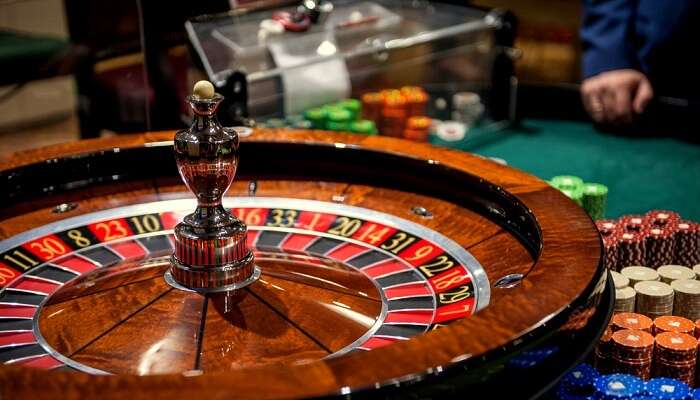For decades there has been no single issue more divisive than that of whether to legalise casino gambling.
A plan to build a major casino venue as part of an entertainment complex was recently put before the House of Representatives which voted 310 to nine in favour of setting up an extraordinary committee to study it.
Headed by Deputy Transport Minister Atirat Ratanasate, the 60-member panel has appointed five sub-committees to explore related areas including related laws, investment and the format of the complex, and measures to prevent any negative impacts. It has 90 days to wrap up the work.
Before the findings are laid on the table, Bangkok Post has talked to MPs who believe time is ripe for casino tourism and other stakeholders who warn the casino project itself is a gamble and its benefits may not outweigh social costs.
An engine of growth
The proposal to set up the House committee was put forward by a group of government and opposition MPs who said legalising casinos is long overdue and touted the casino-entertainment complex as a fix for the Covid-19-battered economy.
The lawmakers touted the economic benefits which the casino-entertainment complex would bring to the tourism and service industry, not to mention state coffers which have suffered from shrinking income due to the pandemic.
Thailand could bank an estimated four trillion baht in revenue per year from legalising casinos, and with Thai and foreign investors looking forward to this form of investment. The casino project also would create jobs and bring greater economic activity, they said.ad
The Northern Economic Corridor comprising Chiang Rai, Chiang Mai, Lamphun and Lampang was floated as a potential location of the project. But at the end of the day it would depend on the feasibility study and local public input.
Some MPs added that if casino gambling was legalised, the country would have more money from tax revenue to subsidise social welfare schemes, education and public infrastructure projects.
Speaking in favour of the proposal, Bhumjaithai Party MP for Uthai Thani Chada Thaiseth said Thailand must move quickly but might start small by introducing gaming at an airport.
“If we decide to get a casino, we have to make it quick. More than a hundred committees have been set up to study this proposal. I think this is the proper time to do it.
“We can have gaming tables for international travellers. As for Thais, there must be conditions for those who want to play. It is all up to the government, if it wants to push ahead,” he said.
For the public good
Chutchawan “Chut Taopoon” Kong-u-dom, leader of the Thai Local Power Party, said he was confident the casino project would materialise this time around as it has received backing from government and opposition MPs.
Online gambling is now widespread and difficult to regulate, and if existing laws are not up to the job, they should be amended to fit the circumstances.
“If we are to have a casino we have to do it right. In other countries, people below 20 are prohibited from entry. The operators don’t want kids there as casinos cater to successful working people who want some leisure time.
There must be rules and not everyone should be allowed to play,” he said.
He also said the party would include legalisation of casinos in its policy platform for the next election with tax income earmarked to help farmers or students.
However, he said the proposed change should be put to a public referendum
Thai Civilized Party leader Mongkolkit Suksintharanon said illegal gambling activities and online betting made 80 billion to 120 billion baht a year and it was time to regulate them and bring the money into the system.
He said the country’s economy was ailing badly with public debts above 10 trillion baht, so tax money from casinos could turn the situation around.
Let the public be the judge
Thanakorn Komkris, secretary-general of the Stop Gambling Foundation, said the casino proposal must be studied thoroughly and when voters cast their ballots in the next national polls, they should be asked to decide.
By putting the issue up for a referendum, everyone must make his case, and parties campaigning for legalisation of gambling can also pitch the idea.
Mr Thanakorn said one of his main concerns is that casinos could be used by criminals to launder illegally-gained money.
While the House committee is proceeding with its study the government should also start developing mechanisms to regulate gambling activities and mitigate the impacts no matter what the outcome of the referendum is.
In his view, even if gambling is eventually legalised, there will always be illegal gambling dens that stray from business standards and try to evade tight supervision and regulation.
Impacts could be adverse and widespread, he said, pointing to the findings of studies on the gambling habits of Thais.
One study concluded that more than a million Thais are heavily addicted to the extent that their habit has hit their health, jobs and relationships.
The proposal being floated also includes the legalisation of online gambling, he said. “The government must take into consideration both the positive and negative impacts,” he said.
Mr Thanakorn does not see eye to eye with those who consider the project a potential solution to illegal gambling or a source of revenue to fund social welfare programmes. There must be other ways for the government to bring in more money, he said.
Brace for impacts
Nattakorn Vititanon, a lecturer at the faculty of humanities and social science, Chiang Mai Rajabhat University, said the government must be clear as to what the casino project may pave the way for in terms of future legislation.
If the project is intended to make tourism revenue, stamp out illegal gambling and keep Thai gamblers and their money in the country, the chances are that Thais will be allowed to gain access to the establishment when there are not enough international tourists.
This is currently the case in some Asean countries where Covid-19 has restricted travel and locals are allowed access to casinos to keep the business afloat, he said.
He also warned that opening a casino when the pandemic is not yet over may backfire due to travel restrictions.
Several casinos have been forced to shut down as their major customers from China still face travel restrictions.
With Thailand relying on Chinese tourists, the casino project could be a long shot during the pandemic, he said.
Mr Nattakorn said that while it is likely Thais will be allowed to access the casino, rigorous rules and remedies must be put in place to mitigate impacts caused by gambling which is known to inflict social ills.
“Impacts associated with gambling such as debts, crimes, and divorces can’t be measured in terms of money, so the issue must be examined and social problems minimised,” Mr Nattakorn said.
According to a 2019 study by the Centre for Gambling Studies, some 30.42 million Thais, equivalent to 57% of the population, engaged in some sort of gambling.
About 20% were between 15 and 18 years old; 46% were aged between 19 and 25; and 42% were 60 or older.
The figure also represented an increase of 1.4 million gamblers from when the study began in 2017.





